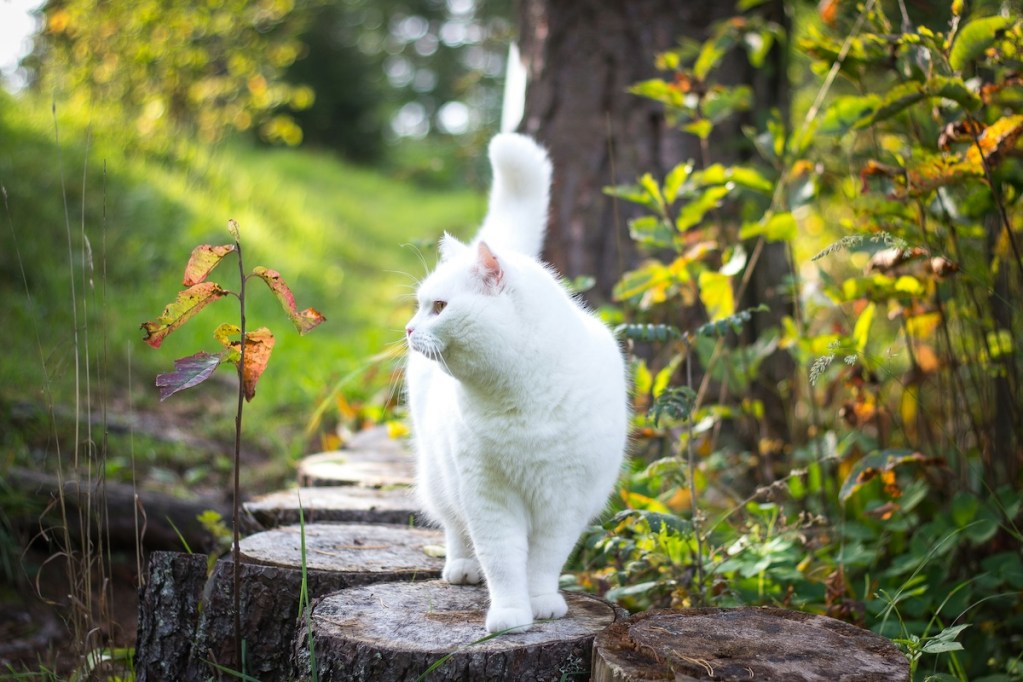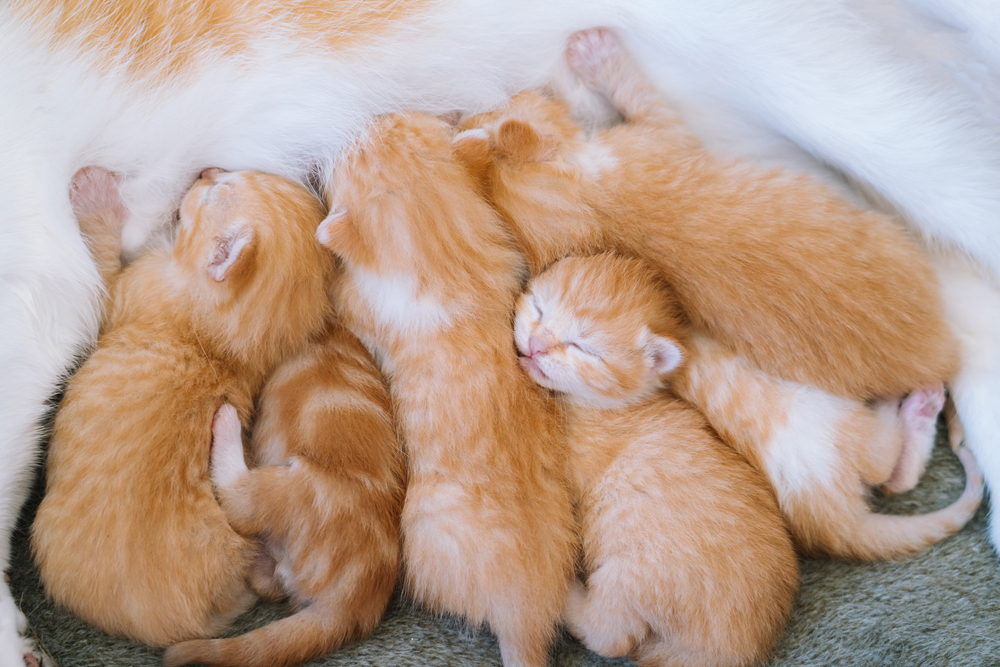
You might get a bit traumatized when you first encounter two cats mating — be prepared for it to turn you off breeding kittens entirely. In fact, we generally recommend that you spay or neuter your animal when you don’t want any babies in the immediate future. Otherwise, your pet will go into heat multiple times per year and may exhibit other unusual behaviors during this time. At the top of this list is the screaming that occurs before, during, and after feline copulation. But why do cats scream when mating? We break the whole process down for you.
What does the reproductive cycle look like in kitties?

There are four major pieces of this that start with heat and end up with a pregnancy, we hope, and this cycle is a bit different from in humans. Unlike us, kitty cats have a mating season, which can vary for a house pet, but it usually coincides with spring and summer where you live. If left to her own devices, your female cat, called a queen, will go through this full cycle many times until she gets pregnant during the season.
Going into heat
It all starts when your fur baby goes into heat. Even with no man or tomcat around, she’ll likely start exhibiting certain behaviors like restlessness, calling, rolling, and something called lordosis (when she sticks her butt in the air). Even if she looks unhappy, she’s really just feeling the urge.
Finding a mate
It’s time for your pet to find a suitable partner, which she does with a loud scream intended to attract fertile males (boy cats often do the same to get a female’s attention). Oftentimes, man cats fight for their woman’s affection, though they don’t really need to, as she’s happy to have a go with lots of different partners.
Getting it on
Cats mate quickly and functionally. The male first grabs the female by the scruff to keep her in place and then inserts his penis, which is covered in small barbs (we’ll come back to this). Both might scream during the act, and it likely feels pretty uncomfortable, at least for the girl on the receiving end. Sometimes, this ends with the queen getting her comeuppance and attacking the tomcat. Afterward, she rests for a while and then starts again.
Stimulating an ovulation
You read that right: Cats don’t ovulate unless they have sex, and rarely does one shot get the job done. That’s why lady cats will often begin to repeat this process soon after they finish with one tom. It also means your sweet girl can get pregnant from multiple cats at once and have a litter with mixed parentage.
Why do cats scream while mating?

We’ve already hinted at the main reason — it hurts. The little barbs on his genitals actually stimulate ovulation, so they do serve a purpose other than hurting his partner. You’ll notice her screams get loudest when he finishes and removes his penis, which could scratch her genitals.
Lastly, she’s dealing with a hormone surge during this time, and that, too, might account for some of the strange behaviors. So what happens when your cat lives alone and has no chance of finding a mate? Well, she’ll get really feisty during her heat and call loudly. When no one answers, her hormone levels return to normal and then she goes back in season just a few weeks later. All told, you might be in for a lot of screeching, and it won’t stop until she gets pregnant or spayed.
Do cats get hurt while mating?

While we acknowledge that the whole mating process seems deeply unpleasant for cats, it’s unlikely to cause any lasting harm. She knows best how to take care of herself, so leave the pair alone while they mate. Afterward, while the female is rolling around and getting ready for her next session, the male will likely retreat. Make sure they each have their own corners, as she can become fairly aggressive immediately following copulation.
Yes, your view of cats may be forever changed after witnessing the strange mating rituals of felines, but this is the only real way to make baby cats happen. So, if you plan to breed kittens, you’ll just have to get used to these peculiar habits. For best results, set aside a private and quiet area where Mom feels safe to potentially raise her brood. Then, allow them to complete their mating ritual and go their separate ways afterward. When you’re pretty sure that your sweet girl is pregnant, take her to the vet for a check-up to make sure everything’s going smoothly. Some cats need extra vitamins during pregnancy and will require high-calorie food. With you by her side, kitty is sure to deliver a perfect litter of babies with no problem.



